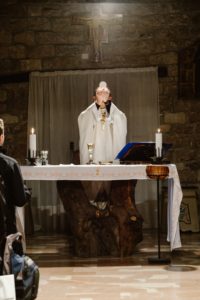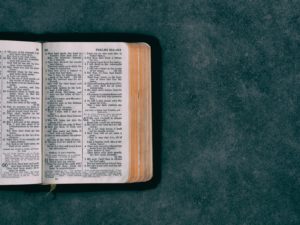
Freedom in modern society has come to become a loaded term. People seem to throw the concept around right and left without really knowing what it means. They may say: “I am a free to do whatever I want with my life”, or “This is a free country”, or even “I have a right to choose what I do with my time/money/sexuality/body/etc…”. They are expressing that they feel it is within their own purview to determine for themselves things like: who they are, what they do, when they do it, and how they relate to others. For anyone to impose upon these “freedoms” has become the ultimate taboo, but let’s look at what this term really means and whether there might be a better way to look at freedom.
To start, let’s look at a standard dictionary definition. The Oxford English Dictionary defines freedom as follows: “the power or right to act, speak, or think as one wants without hindrance or restraint.” Well that seems to fit pretty well with society’s idea of the subject, but I think we all know from personal experience or observation that taking this concept of freedom doesn’t always lead us to happiness or satisfaction. I myself before entering the seminary was working as a pharmacist, making lots of money, had a nice house, nice car, took nice vacations, and as a single guy, could and (usually) did choose to do whatever I wanted to do pretty much whenever I wanted. Sounds great, doesn’t it? I had ultimate freedom and was exercising it just like society tells us we should. Well there is something written in our hearts by the God who created us that isn’t satisfied by society’s freedom, which is why I went searching for something else and found it in another type of freedom all together, the freedom that God has designed for us to live in. I do not mean to say that something radical like quitting a well-paying job and going to the seminary is the only way to do this. But perhaps if we look at our own lives or the lives around us we can see ways in which we have made decisions, small or large, that we were sure would make us happy and then didn’t, or see in the life of someone we know and love how a single decision or a series of decisions have led to difficulty or hardship.
 So what is the difference between the type of freedom that God desires for us all to live in and the freedom that society idealizes? Well, to start, society’s freedom is only bounded by whatever one decides for themselves is right or wrong, regardless of whether or not something is good for us or bad for us. Now we know that this is not the way the world always works, society has laws that we have to follow, but in general, even if you follow the laws imposed by society, there is still a wide latitude to determine for oneself what is ok and what isn’t. The freedom offered to us by God is a bit different, and on the surface seems much less appealing, there are all sorts of rules that we have to follow that limit us: the ten commandments, the teachings of the church on sin, etc. If one is seemingly unlimited and the other is seemingly full of rules, why would we choose the second? Well, if we are free to choose anything, that means we can, and likely will, choose at least some things that aren’t good for us, either for our bodies, or for our souls. We might choose to drink too much, we might choose to have sex with whoever we want and whenever we want, or we might lose track of the fact that other people have inherent dignity and turn them into tools for our own satisfaction. The freedom that God offers, while it does seem to have rules associated with it, is designed for our wellbeing. These rules, which really aren’t so much rules for what not to do, but rather guidelines for how to choose what is truly good for us, choosing the good over evil, we are prevented from falling into the traps that will inevitably lead us to unhappiness in this life (in the long run, because sinning usually seems pleasurable at first) and frees us to become the person that God intended from the very beginning, and in doing so, to spend eternity with Him.
So what is the difference between the type of freedom that God desires for us all to live in and the freedom that society idealizes? Well, to start, society’s freedom is only bounded by whatever one decides for themselves is right or wrong, regardless of whether or not something is good for us or bad for us. Now we know that this is not the way the world always works, society has laws that we have to follow, but in general, even if you follow the laws imposed by society, there is still a wide latitude to determine for oneself what is ok and what isn’t. The freedom offered to us by God is a bit different, and on the surface seems much less appealing, there are all sorts of rules that we have to follow that limit us: the ten commandments, the teachings of the church on sin, etc. If one is seemingly unlimited and the other is seemingly full of rules, why would we choose the second? Well, if we are free to choose anything, that means we can, and likely will, choose at least some things that aren’t good for us, either for our bodies, or for our souls. We might choose to drink too much, we might choose to have sex with whoever we want and whenever we want, or we might lose track of the fact that other people have inherent dignity and turn them into tools for our own satisfaction. The freedom that God offers, while it does seem to have rules associated with it, is designed for our wellbeing. These rules, which really aren’t so much rules for what not to do, but rather guidelines for how to choose what is truly good for us, choosing the good over evil, we are prevented from falling into the traps that will inevitably lead us to unhappiness in this life (in the long run, because sinning usually seems pleasurable at first) and frees us to become the person that God intended from the very beginning, and in doing so, to spend eternity with Him.
So, you may be asking yourself at this point, “well if I can’t choose for myself how to live my life, how am I free?” or “What is the point of freedom that is bound to take me down the wrong path if I use it?”
Well, the “rules” we have to follow, that God desires for us to follow, are an expression of the law that God wrote on the human heart from the beginning of time, they are guidelines for how to lead a life that will allow us to flourish, and on what to avoid for our own sake and for the sake of those around us. We are free in that we can and must choose whether to follow the “rules” or not, God could have created man so that he would never disobey the commandments and would worship God without question, but that is not what He desired. Also, if God’s law was contrary to our good, then there would be no purpose to it, but that is not the case. God wants us to use the unique faculties he has given us, our reason, to choose to live a life that is in accord with the law of the universe which is within us and is reinforced and taught to us by scripture and tradition, and by doing so, to live a life free from enslavement to sin and vice. In all this, we still have the ability to choose to not follow the law, to choose to do it our own way, God respects that we have that choice, but in doing so we choose to separate ourselves from Him. In other words, being obedient to God’s law is not contrary to our freedom, but is precisely what our freedom is for.
So, all this having been said, we have to choose which standard of freedom we will adopt. On the one hand, we can choose to live by the freedom that the world idealizes, that freedom that allows us the complete ability to determine for ourselves right and wrong as well as good and evil, which is not grounded in or ordered toward our nature or wellbeing, but is founded instead on our feelings and desires. Or we can choose a freedom that God has designed into the very core of our being, a freedom to choose the good because it is good, and to choose to reject the evil because it is evil, not because it feels that way, but because the ability to know lies within us and we have the help of the church to know with surety. You have the freedom to choose which one, which to me at least, is a reason to choose the way that the One who gave me that choice desires.
 Some may be thinking at this point, “That’s easy enough for you to say, you’re a priest, you’re taught to follow the rules and teachings of the church and to tell others to do so too. I still don’t see how or why this sense of freedom that the church wants me to buy into is for me. In our modern scientific world, surely we’ve moved beyond a lot of those outdated notions and dependence on the church.” To this I respond, that, while yes, I am a man of faith, I am also a man of science (having earned a doctorate in pharmacy and working in the field for 6 years), and because of this background, I do not think I could have come to believe in the teachings of the church if someone simply said that I had to accept everything I was told on faith alone. As a scientist, I would like to make a distinction, Theology (and moral theology as a specialty field within it) is itself a science. A definition of science being: “a systematically organized body of knowledge on a particular subject.” Theology is the science of God, and as such studies God, in as much as what we can know about Him, just as other sciences study their subjects in as much as they can be known, Medicine for example studies the function of the human body, both in its right functioning as well as in illness, considering the fields of biology and chemistry as they explain these functions. Theology studies God in as much as He is known.
Some may be thinking at this point, “That’s easy enough for you to say, you’re a priest, you’re taught to follow the rules and teachings of the church and to tell others to do so too. I still don’t see how or why this sense of freedom that the church wants me to buy into is for me. In our modern scientific world, surely we’ve moved beyond a lot of those outdated notions and dependence on the church.” To this I respond, that, while yes, I am a man of faith, I am also a man of science (having earned a doctorate in pharmacy and working in the field for 6 years), and because of this background, I do not think I could have come to believe in the teachings of the church if someone simply said that I had to accept everything I was told on faith alone. As a scientist, I would like to make a distinction, Theology (and moral theology as a specialty field within it) is itself a science. A definition of science being: “a systematically organized body of knowledge on a particular subject.” Theology is the science of God, and as such studies God, in as much as what we can know about Him, just as other sciences study their subjects in as much as they can be known, Medicine for example studies the function of the human body, both in its right functioning as well as in illness, considering the fields of biology and chemistry as they explain these functions. Theology studies God in as much as He is known.
It seems to me that many people think that just because something is not demonstrable by the methods of the hard sciences then it must be interpreted as being subjective and thus, just because I interpret something one way or believe one thing, that doesn’t mean that it holds for anyone else. First, in this lies a presumption that what we call “the sciences” utilize purely objective data while faith is purely subjective. While much of the data that science uses can in fact be called objective, in medicine for instance, we rely on lab results, vital signs, and measurements from instruments; but, just as important in assessing a patient are subjective types of data, things such as pain severity, mood, and patient reported symptoms such as dizziness or nausea. Faith also has an objective element… for instance, one can objectively reason that God exists. Thomas Aquinas gives five “proofs” or “ways” to reason the existence of God, the first way being with regard to motion in the universe (a scientific reality that underpins all matter and life). The proof states that that nothing is in motion that isn’t put into motion by something else, thus everything that is in motion has been put into motion by some other moving thing as nothing that is not moving can put itself into motion, thus there must be some first mover, and this mover we understand to be God. The Catechism tells us: “there is another order of knowledge, which man cannot possibly arrive at by his own powers: the order of divine Revelation. Through an utterly free decision, God has revealed himself and given himself to man. This he does by revealing the mystery, his plan of loving goodness, formed from all eternity in Christ, for the benefit of all men. God has fully revealed this plan by sending us his beloved Son, our Lord Jesus Christ, and the Holy Spirit.” (CCC 50), in other words, if God exists, then it is not unreasonable to believe that He revealed things to us about himself that we cannot come to know by reason alone.
Our current societal ideas about Ethics and morality have been shaped by philosophical ideas that have tried to divorce themselves from faith. Beginning in the 18th century, there began to develop schools of thought that rejected a sense of obligation or law, preferring to appeal to a sense of personal freedom and conscience (as in what feels right to an individual, not something that’s discerned and informed by any outside factors), appealing to love and relationship over duty to God and other men in general. These ideas place the happiness of the individual or group as the highest good, and a sense of there being a “moral calculus” that can decide whether or not something is good to do or not. This might not sound too bad, but it leads to thinking that the good of one person may be sacrificed for the good of another or of a group, allowing people to justify things like abortion or euthanasia or embryonic stem cell research.
 Might I instead point out the principles that the tradition of the church has given us for making judgements about the goodness of acts. God has ordered us such that the end of all of our actions is the loving vision of the one who created us for all eternity, what we call beatitude. This is attained through Grace (which we receive through the reception of the sacraments), practice of the virtues (which are our activities rightly ordered), gifts that God has given to us individually, revelation that has been given to us through the church and especially in scripture, and finally by reason. We must also keep in mind the fact that while all of our actions have an impact on ourselves and sometimes others directly, we must also be aware that, as members of the body of Christ, even actions that don’t seem to effect anyone but ourselves effect the other members of His body as well.
Might I instead point out the principles that the tradition of the church has given us for making judgements about the goodness of acts. God has ordered us such that the end of all of our actions is the loving vision of the one who created us for all eternity, what we call beatitude. This is attained through Grace (which we receive through the reception of the sacraments), practice of the virtues (which are our activities rightly ordered), gifts that God has given to us individually, revelation that has been given to us through the church and especially in scripture, and finally by reason. We must also keep in mind the fact that while all of our actions have an impact on ourselves and sometimes others directly, we must also be aware that, as members of the body of Christ, even actions that don’t seem to effect anyone but ourselves effect the other members of His body as well.
So how do we get these teachings of the church? Just because some guy in Rome writes something in a book doesn’t necessarily mean that it is divinely inspired. That is where tradition comes in. Tradition is most easily seen in scripture, the church discerned over hundreds of years what texts would be considered sacred scripture and what would not, eventually from the dozens of gospels and letters that were circulating in the centuries after the death and resurrection of Christ, the current list of books that are in the New Testament were decided upon. In addition to scripture we have the teachings of the church, teachings that do not contradict scripture, and that go beyond that which is contained in the bible itself; these things we believe are based in the teaching of Christ to his apostles, were handed on, at first, by word of mouth, and then in writing, and that the bishops of the church, being the successors to the apostles, have the authority to receive the tradition and to interpret it for us even to this day. The whole concept of authority seems to be in conflict with the principles of self-determination that I already discussed as having become prominent in society today, however it does not mean that the church has the power to tell you what to do and how to act in every moment of your life. What it does mean is that on matters of faith and morals: between the teachings of sacred scripture, the deposit of teaching found in tradition, and when the church through the Pope and the Bishops in union with him issue teaching to confront emerging issues, that we should trust that what is being handed on to us is the authentic truth which is designed for our flourishing and not our harm (this does not mean we will always understand immediately what is being taught, but we should strive to come to understanding and accept the teaching in faith until we can come to some understanding).
Author: Rev. Fr. Christopher Smith, Pharmacist with MyCatholicDoctor
Editor: Samantha Wright, Marketing Director with MyCatholicDoctor
Leave a reply